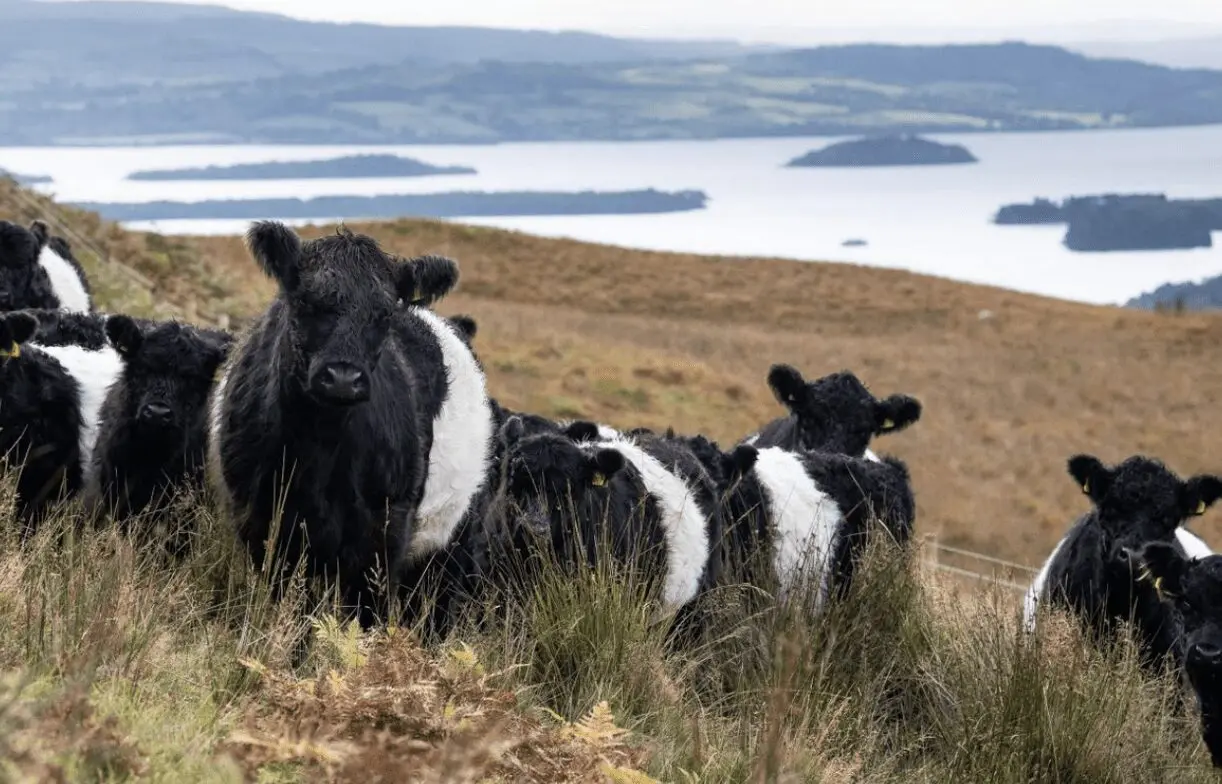Search Posts
Recent Posts
- Rhode Island Legislature Highlights Accomplishments for the 2025 Session June 25, 2025
- Sports in RI: Cody Tow, Volleyball Past, Present and Into His Future – John Cardullo June 25, 2025
- Need a Break? Time for Sour Grapes – Tim Jones June 25, 2025
- Rhode Island Weather Forecast for June 25, 2025 – Jack Donnelly June 25, 2025
- It is what it is: Commentary on 6.25.25 with Jen Brien June 25, 2025
Categories
Subscribe!
Thanks for subscribing! Please check your email for further instructions.

Rural life faces grim reaper – David Brussat
by David Brusat, Architecture Here and There, contributing writer
Photo: Cows, unaware of dark clouds, enjoying rural landscape in Scotland. (heraldscotland.com)
The shadow darkening over pastures and woodlands, farm villages and hamlets probably threatens the rural style of life more in Britain than in America, where only a remnant of family farms, dairy or crops, survives in New England and the mid-Atlantic states, with hobby farms pushing out family farms year by year, not to mention the threat of large commercial farming.
Another part of this long rural demise stems from the pressure of remorseless urban development as it spreads from city and suburb, chewing up the farm life. Another part stems, especially in Britain, from the equally remorseless seizure by woke mentality, climate alarmism and negative Brexit blowback (lost agricultural subsidies) of institutions that regulate the edges of the rural mentality.
This blog tends to focus on the ill effects of modernity on the urban landscape, but every nation (almost) has its own rural landscape, and its adulteration and disappearance is the flip side of what has happened in cities and towns round the globe. Behold the latter-day imperialism of brutal neo-colonialism! The survival and regeneration of this half of every nation’s life is as important as getting control of what is happening to all of our cities.
The Scottish farmer and author Jamie Blackett has written a pair of books describing his fight to protect the land in Scotland that his family has owned for generations. Red Rag to a Bull: Rural Life in an Urban Age is the first; newly out also from Quiller is the second, Land of Milk and Honey: Digressions of a Rural Dissident. In the sequel Blackett describes in detail how, in the words of James Stevens Curl, “[Blackett] and his family coped with the crisis by adopting regenerative agriculture and transforming his business into pasture-based dairy-farming.” Stevens Curl has reviewed both books and in his essay on the sequel describes what Blackett hopes to save:
It should be remembered that visually agreeable countrysides, with hedgerows, copses, fields, farm-buildings, etc., are the results of centuries of interventions by humankind, creations that embrace æsthetics, architecture, and all sorts of artefacts that derive from conscious design decisions, such as fencing, gates, stiles, dry-stone walls, and so on.
Stevens Curl, who wrote a vivid history of modernist architectural and planning theories and practices (Making Dystopia: The Strange Rise and Survival of Architectural Barbarism), is at his best describing the forces against which farmers and most other people without reality dysphoria must struggle. I would like to close by extracting from Blackett’s sequel what he is best at describing, the delights of farming and of the rural world. And, as is appropriate this week of Queen Elizabeth’s sad shuffle (in Scotland) off this mortal coil, the passage involves the death and funeral of Blackett’s father:
We brought him home to Galloway to be buried. Fittingly it was a busy farming day, after a catchy spell of weather there was a window to get on and cut silage [fodder grown as food for herds]. I hesitated before allowing the contractors to come on the day of the funeral, then thought Dad would have insisted that we crack on, so made a plan for them to go for it with the aim of sheeting the day after, it would be good for us to be kept busy. So, as we sadly made our way towards the church in Dumfries we passed frenzied activity: the chopper munching its way through thick rows of mown grass in the field next to the kennels, and tractors thundering around the roads leading silage to the pit. It was a grassy year and our first cut was the heaviest ever. Dad had seen it on his last day with us ten days before, and had glowed with pleasure as he gave me rare praise for the crop. It all served to emphasize that life goes on.
And so it does, on farms, with greater difficulty amid shrinking beauty – unless King Charles decides to speak out on the disappearance of this aspect (among all too many others) of Britain’s greatness.
___
To read other articles by David Brussat: https://rinewstoday.com/david-brussat-contributing-writer/

My freelance writing and editing on architecture and others addresses issues of design and culture locally and globally. I am a member of the board of the New England chapter of the Institute of Classical Architecture & Art, which bestowed an Arthur Ross Award on me in 2002. I work from Providence, R.I., where I live with my wife Victoria, my son Billy and our cat Gato. If you would like to employ my writing and editing to improve your work, please email me at my consultancy, dbrussat@gmail.com, or call (401) 351-0457
